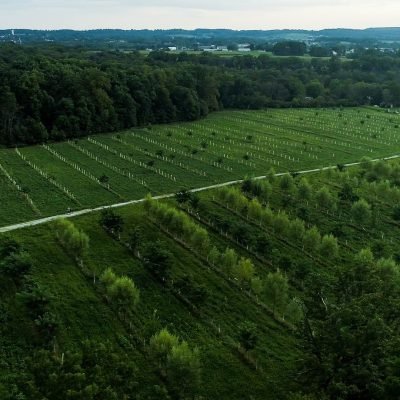The Environment and Sustainability sector plays a crucial role in ensuring that economic growth is balanced with environmental preservation and resource conservation. In Odisha, the Odisha Chamber of Commerce (OCC) can focus on promoting initiatives that support green technologies, environmental conservation, and sustainable business practices. With Odisha’s diverse ecosystems, natural resources, and growing industrial base, there is significant potential for collaboration between businesses, government, and local communities to create sustainable solutions across multiple sectors.
Solar Power Generation: Odisha has substantial solar energy potential due to its ample sunlight. OCCI can encourage investments in large-scale solar power plants, rooftop solar installations, and off-grid solar systems for rural areas.
Solar Manufacturing and Equipment: There is an opportunity to establish manufacturing units for solar panels, solar batteries, and other photovoltaic equipment to cater to both domestic demand and export markets.


Wind Power Projects: Coastal regions in Odisha have the potential for wind power generation. OCCI can work on facilitating wind energy projects, including offshore wind farms and onshore wind energy installations.
Wind Turbine Manufacturing: Setting up local manufacturing facilities for wind turbines and related components can create jobs and support the growth of the wind energy sector.
Biomass Power Generation: Odisha’s agricultural sector produces a large amount of biomass (crop residues, wood, etc.). Converting this biomass into energy can help provide clean energy while managing agricultural waste.
Biogas Production: Encouraging the establishment of biogas plants to convert organic waste (from agriculture, food processing, and municipal waste) into energy can support rural energy needs and reduce waste.


Small and Medium Hydroelectric Projects: Odisha’s rivers and water resources offer opportunities for small-scale hydroelectric projects. These projects can be developed to provide sustainable energy while minimizing environmental impact.
Waste-to-Energy Plants: Setting up waste-to-energy plants can help in managing municipal waste while generating energy. These plants can convert non-recyclable waste into biofuels or electricity.
Waste Segregation and Collection Systems: Promoting efficient waste segregation systems for residential, commercial, and industrial areas can help reduce landfill use and improve recycling rates.


Plastic Recycling and Reprocessing: With the growing concerns about plastic pollution, OCCI can support industries focused on plastic recycling, reprocessing, and creating products from recycled plastic.
Sustainable Alternatives: Encouraging the development and adoption of sustainable alternatives to plastic, such as biodegradable packaging and plant-based plastics, can significantly reduce environmental impact.
E-Waste Recycling: Odisha can focus on setting up recycling units for electronic waste (e-waste) to extract valuable materials (such as gold, copper, and aluminium) and reduce harmful environmental impacts
Responsible Disposal and Awareness Campaigns: Promoting awareness about the proper disposal of e-waste and encouraging companies to take responsibility for recycling their products can drive positive environmental change.


Promoting Organic Agriculture: Odisha’s agricultural sector can move towards organic farming practices to reduce the use of synthetic chemicals and fertilizers, promote soil health, and cater to the growing demand for organic produce.
Agro ecology and Permaculture: Supporting agro ecological practices and permaculture systems that integrate biodiversity and sustainable farming techniques can help improve food security while preserving the environment.
Agroforestry Practices: Encouraging agroforestry, where crops and trees are grown together, can increase agricultural productivity, enhance biodiversity, and improve carbon sequestration.
Forest Conservation: Promoting initiatives aimed at conserving Odisha’s rich forest resources and preventing deforestation can help maintain ecosystems and mitigate climate change.


Rainwater Harvesting: Promoting rainwater harvesting systems in rural and urban areas can significantly improve water availability during dry seasons, reducing dependence on groundwater.
Irrigation Efficiency: Developing modern irrigation systems such as drip and sprinkler irrigation to optimize water use in agriculture can conserve water and improve crop yields.
Promoting Eco-Friendly Tourism: Odisha has a rich cultural and natural heritage, with diverse ecosystems such as coastal areas, forests, and wildlife sanctuaries. Developing eco-tourism opportunities that promote environmental conservation while creating economic benefits for local communities is essential.
Sustainable Practices in Tourism: Encouraging the tourism industry to adopt sustainable practices such as waste management, energy-efficient facilities, and eco-friendly transportation options can help reduce the sector’s environmental footprint.


Wildlife and Habitat Conservation: OCCI can support initiatives to protect wildlife habitats and promote responsible tourism activities near wildlife sanctuaries like Simlipal National Park and Chilika Lake.
Cultural Heritage Conservation: Protecting Odisha’s unique cultural and architectural heritage while promoting responsible tourism can contribute to the preservation of both cultural and natural assets.
Water Filtration and Desalination Technologies: Encouraging the adoption of water purification technologies such as reverse osmosis (RO) systems, UV treatment, and desalination plants can help ensure access to clean drinking water in both rural and urban areas.
Wastewater Recycling: Promoting wastewater treatment and recycling for industrial and agricultural use can reduce water consumption and minimize water pollution.


Marine and Freshwater Conservation: Sustainable management of Odisha’s vast coastline and freshwater resources is crucial to protect marine and aquatic biodiversity.
Aquaculture and Fish Farming: Encouraging sustainable aquaculture practices can increase seafood production while minimizing environmental degradation, such as the overuse of resources and habitat destruction.
Green Building Standards: Promoting green building standards such as LEED (Leadership in Energy and Environmental Design) and IGBC (Indian Green Building Council) can encourage the construction of energy-efficient, low-carbon buildings.
Sustainable Construction Materials: Encouraging the use of eco-friendly materials like recycled steel, bamboo, and locally sourced materials can reduce the carbon footprint of construction projects.


Construction and Demolition Waste Recycling: Establishing systems for the recycling of construction and demolition waste (such as concrete, wood, and metal) can help reduce the environmental impact of the construction industry.
Efficient Resource Use: Encouraging the use of energy-efficient techniques during construction, such as solar-powered equipment and low-impact construction methods, can minimize the sector’s environmental impact.
Green Initiatives by Businesses: Encouraging businesses to incorporate environmental sustainability into their CSR activities can help fund conservation projects, renewable energy initiatives, and waste management programs.
Collaboration with NGOs: Partnering with environmental NGOs and local community organizations can support projects focused on biodiversity conservation, reforestation, and pollution control.


Environmental Education Programs: Organizing workshops, training programs, and public awareness campaigns can educate local communities about the importance of sustainability and environmentally friendly practices in everyday life.
Green Certifications and Incentives: Providing incentives for businesses and industries to adopt sustainable practices, such as offering green certifications and tax breaks, can drive widespread adoption of sustainable practices.